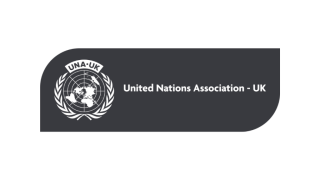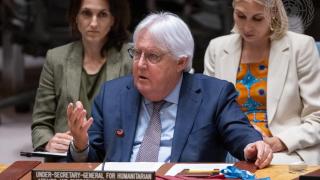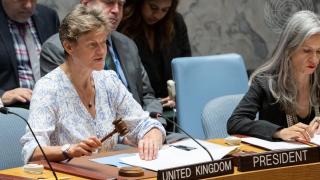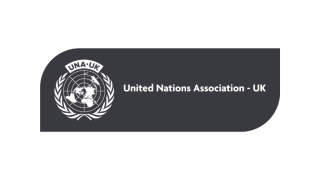
Today, Wednesday 13 December, the Conference of the Parties (COP28) in the United Arab Emirates surprisingly swiftly adopted a deal agreeing to “transition away from fossil fuels”. This outcome document, called the UAE consensus, demonstrates a significant shift in appetite for climate action, however unanswered questions on financing a just and fair transition means political loopholes loom large.
UNA-UK CEO Marissa Conway has made the following statement:
It has long been clear that any serious commitment to keeping global warming below 1.5°C must go hand in hand with a commitment to phasing out fossil fuels entirely. After decades of negotiations, we have for the first time a COP that has delivered an outcome where countries agree to transition away from fossil fuels. While this significant step signals a change in ambition that has long been overdue, it is disappointing that the full phase out of coal, oil and gas fell short of consensus.
Concerningly, this outcome document provides no plan to fully finance a fair and just transition. Once again, major polluting powers have thwarted substantial commitments to pay up, leaving the most climate-vulnerable and least responsible states exposed at the frontline of the environmental crisis.
The science is clear. The ethics are clear. The solutions are clear. To meet the Paris Agreement's commitments and protect people and the planet from damage caused by the climate crisis, we need political leaders motivated by morals, not money and power.
It is profoundly disappointing that British climate minister Graham Stuart left COP28 during the negotiations to return to the United Kingdom and vote on the Government’s new Rwanda Bill in a bid for short-term political gain. We need leaders who take the long-term health of the planet and its people seriously.
With an unprecedented number of fossil fuel lobbyists in attendance, as well as the CEO of an oil company serving as president, COP28 became a playground for oil and gas actors to plant the seeds of climate disinformation and denial. Next year’s COP will be hosted by Azerbaijan, a state which receives two-thirds of its revenue from oil and gas. A growing and deeply troubling trend of special interest influence is emerging, threatening the integrity of COP and the ability to make global progress on the climate crisis, ultimately leaving communities that bear the brunt of climate change vulnerable.
I applaud civil society representatives and frontline activists who refuse to back down in the face of this power imbalance. Despite persistent and unacceptable barriers to access, they show at COP and up every day after to bring solutions that meet the scale of this crisis.
At this crucial juncture, where the actions of today shape the legacy of tomorrow, global leadership must align with the urgent, moral imperative to safeguard our planet and its inhabitants for generations to come. The work towards COP29 begins now.






